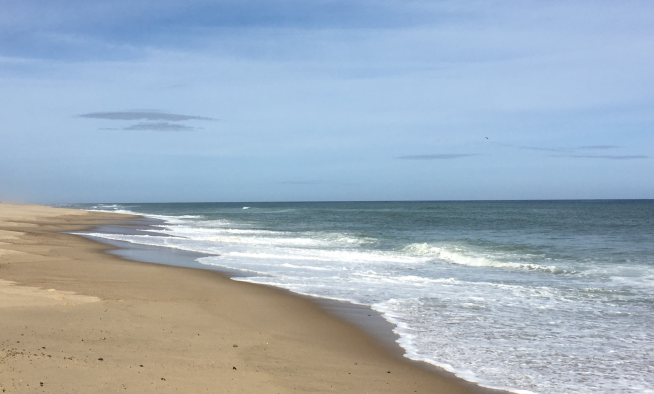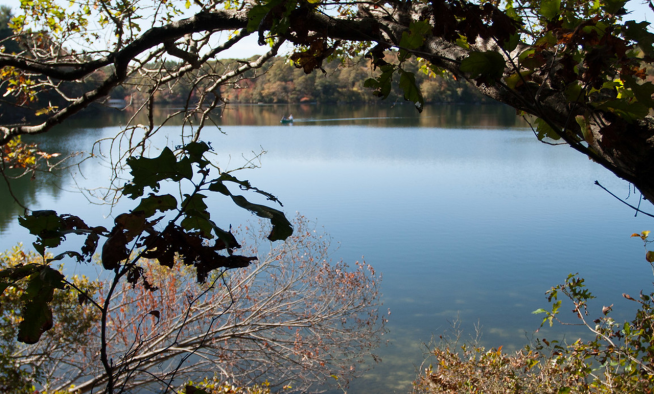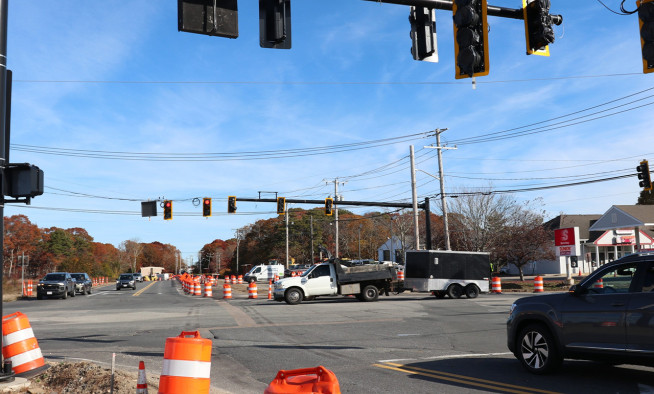Cape Cod’s Natural Systems: Protection, Restoration, and Recreation
Natural systems are central to Cape Cod’s identity and resilience, shaping the region’s environment, economy, and quality of life. A series of lightning talks by Commission staff highlighted efforts to protect ponds, enhance outdoor access, and build resilience in the face of climate stress, sharing practical actions that communities and residents can take.
Heather McElroy, Cape Cod Commission Natural Resources Program Manager, opened the session by drawing attention to the Cape’s 890 ponds and lakes. A component of the Commission’s Freshwater Initiative, she showcased the Pond Buffer Guide, a practical resource to help pondshore owners and local groups implement consistent, science-based practices within 100 feet of the shoreline. With strategies such as layered native vegetation, erosion-resistant access points, and a detailed plant list for properties both near and away from water, the guide provides tools for healthier ponds while preserving cherished views. McElroy encouraged residents to pair these actions with recommendations from the Cape Cod Freshwater Strategy, which calls for monitoring, implementing projects, and reducing fertilizer use to support healthy ponds.
Commission Natural Resources Analyst Jessica Rempel previewed Cape Cod Outdoors, a new initiative funded by the Massachusetts Office of Outdoor Recreation. In partnership with the Cape Cod Chamber of Commerce and the Compact of Cape Cod Conservation Trusts, the Commission is creating a comprehensive inventory of the region’s recreational assets. By compiling and verifying data on beaches, trails, ponds, and woodlands, the project will culminate in a public web application with consistent, Cape-specific information and branding. Rempel emphasized the strong ties between outdoor recreation and the Cape’s economy, identity, and well-being, noting that the tool will enhance planning, expand access, and foster a deeper connection between residents and visitors to the outdoors.
Closing the plenary, Commission Water Resources Analyst Tim Pasakarnis addressed the growing challenge of drought and water use. He explained how drought is measured in relative terms, which helps explain why Cape Cod has faced more frequent and severe declarations in recent years, despite stretches of wet weather. Lower pond levels, aquifer stress, and operational challenges for public water suppliers underscore the risks. Sharing findings from a drought resiliency project, Pasakarnis noted that while tiered water rates modestly reduce demand, they are most effective when combined with seasonal restrictions and sustained public education. His takeaway: pricing is one tool, but behavioral change and collective responsibility are key.
A breakout session, From Planning to Action: Practical Strategies to Improve Pond Water Quality, showcased how the region is implementing the Freshwater Strategy. Presenters demonstrated how shoreline restoration, municipal initiatives, nonprofit leadership, and cutting-edge monitoring technologies are converging to improve pond health. From design-based shoreline protections to community-driven restoration, and from municipal implementation to innovative remote sensing research, the panel underscored that success will come through partnerships and coordinated effort. Commission staff tied these strands together, discussing how local action aligns with the regional strategy.
Related Posts




